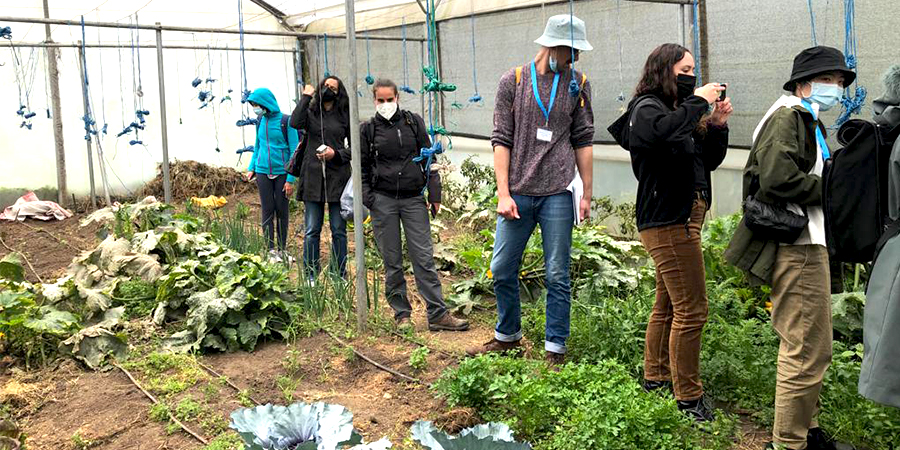- Most viewed
- Last viewed
Architecture students develop a green infrastructure plan for a neighbourhood in Quito (Ecuador) to reduce climate risk and improve food sovereignty
Researchers from the Latin American Faculty of Social Sciences of Ecuador (FLACSO) and the University of Montreal, the local NGO AYRIWA and local community representatives collaborated in the workshop
Students from the University Master's degree in International Cooperation: Sustainable Emergency Architecture at UIC Barcelona took part in an international workshop between 13 and 23 March, whose main objective was to develop urban regeneration proposals for the La Lucha de los Pobres neighbourhood in Quito (Ecuador). The workshop focused specifically on the integrated diagnosis of the neighbourhood's green infrastructure and social analysis in order to prevent climate risk and improve the local community’s food sovereignty.
The academic initiative was led by the director of the master's degree, Carmen Mendoza-Arroyo; architect and lecturer at the New York Institute of Technology, Farzana Gandhi, and research assistant Ashley Howard. Researchers from the Latin American Faculty of Social Sciences of Ecuador (FLACSO) and the University of Montreal, as well as the local NGO AYRIWA and the community council of the La Lucha de los Pobres neighbourhood also took part in the initiative. The workshop forms part of the ‘SUSTENTO Project. Enhancing the resilience of alternative food systems in informal settings in Latin America and the Caribbean through bottom-up initiatives in the built environment’, which is funded by the International Development Research Centre (IDRC) in Canada.
Community action
Following a physical diagnosis of the proposed site, which was carried out remotely from Barcelona, the students travelled to Ecuador and split into teams to work on four main themes.

The first of these involved an analysis of urban allotments as part of the neighbourhood's green and civic infrastructure, including an analysis of their productivity, the recycling and composting system and community food production solutions, mainly driven by women. The second group worked on regenerating the stream in the Argelia neighbourhood to detect risks associated with climate change, primarily flooding and heat waves. The third group studied the relationship between formal and informal commercial activity to explore alternative cultural food systems and developed prototype ‘community exchange hubs’ to provide an outlet for local production. Finally, the fourth group analysed existing barriers in the neighbourhood related to mobility, accessibility and public transport in order to improve connectivity, safety, etc.
The workshop adopted a strong social approach, working closely with community representatives and other local actors, in order to ensure that the proposals developed by the students incorporated experiences previously acquired by the community in relation to existing gardens and other elements of the landscape.
“Climate change has a particular impact on the most socially vulnerable communities and environmental policies can produce negative effects that must be assessed. Food sovereignty is becoming an increasingly vital part of a neighbourhood or settlement's green infrastructure. This is precisely the case in the La Lucha de los Pobres neighbourhood, where the landscape and green networks are closely linked to the community's livelihoods through its urban gardens”, explains Carmen Mendoza-Arroyo.
The objective now is for the results of the workshop to materialise into a real community action project, in collaboration with the local population and different stakeholders in the neighbourhood.